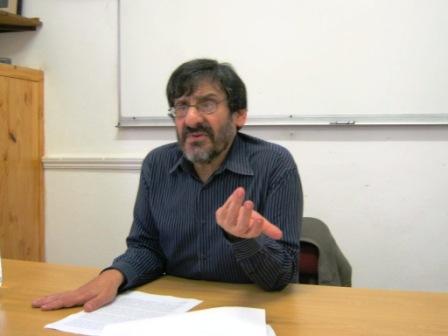
Most rating agencies, and many to whom they speak, would be horrified to learn that they share a view of our future with many on the left. But it is this shared story that goes a long way towards explaining Moody’s decision to downgrade South Africa’s credit rating.
Moody’s says it is worried about political uncertainty as well as "the authorities’ reduced capacity to handle the political and economic situation" and "to implement effective strategies" that would promote "faster and more inclusive growth". Decoded, that must mean Marikana and Mangaung.
It is hard to see how either shows that South Africa is a bigger risk than it was the last time we were rated. Marikana reveals problems that have been with us for a long time but are no threat to stability: despite wildcat strikes on the mines, economy-wide levels of industrial action this year are likely to be lower than last year. The labour relations system has not collapsed: bargaining will be resumed because it is the only workable arrangement for workers and employers. The strikes have not triggered a protest wave in townships and shack settlements.
Nor will Marikana trigger policy shifts: it has simply confirmed people in the attitudes they held beforehand. Because positions will not shift, we will not address some problems we need to tackle — but we weren’t tackling them before Marikana either.
The African National Congress conference in Mangaung in December may pass resolutions suggesting that the government plays a bigger role in the economy, but the policy conference decisions released last week suggest that none will pose a serious threat to business. Rating agencies presumably also know that in no democracy do resolutions passed by governing parties automatically become reality. If they are to become policy or law, they will need to be negotiated with business and other interests. They may never see the light of day and if they do, will be different from the resolutions.
So why the downgrade? One reason may be that agencies, criticised for being too lenient before the global crisis, want to show how strict they are. But here it also has to do with the story the agencies, some analysts and much of the left carry in their heads. At some point, this story says, we will fall off the fiscal tightrope because the poor will rise up and make demands that break the bank. For the left, that is why we need big change now. For the agencies and analysts, it is why we are destined for ruin.
But the threat to fiscal health comes not from the poor — and it is manageable.
Millions of poor people do want a better life. But that does not mean they will demand changes the fiscus can’t afford — research shows that, because the poor are engaged in a battle for survival, they are pragmatic and aware of the limits to change. Poor people have been on the streets protesting for eight years and the demands that emerge are hardly extravagant. Often protesters simply want politicians to listen. Or they want tarred roads or better housing or that officials leave people to live and trade where they please.
The militant voices are not those of the poor but of the organised middle class. The poor are not organised — this is why the grass-roots protests don’t produce detailed demands. Protests are often organised by ambitious local politicians who know people are unhappy but are not interested in bargaining to improve their lives. They are often a symptom of a lack of organisation.
The loud middle-class voices, which often dominate, have few contacts among the poor. This is why Winnie Madikizela-Mandela never developed a national mass following and why Julius Malema’s popularity among the media never translates into real numbers. Neither they nor the other voices who claim to speak for the poor have any role in organising grass-roots protest. They are seen as popular and powerful because many opinion-formers share the fear that the poor must be listening to politicians who use militant slogans — not because they really are.
The Congress of South African Trade Unions, the country’s best organised mass movement, speaks for an important constituency but not for the poor — hence its opposition to e-tolling, which would affect those who own cars, not those who use buses and taxis.
Because the pressures are coming from the organised and the connected, their support will be limited and so too their ability to get what they demand. The pressures for change are containable provided the key interests are willing to compromise.
That the poor are unorganised is not a plus — if they were organised, their demands might show the realism born of need and we would be far better able to negotiate change, which would enjoy widespread support. But right now, the pressures for spending are about how to divide the cake among the organised. That is not ideal, but it is no recipe for falling off a fiscal cliff.
• Steven Friedman is director of the Centre for the Study of Democracy at Rhodes University and the University of Johannesburg. This article was published on www.bdlive.co.za.
